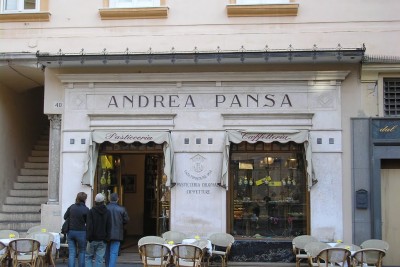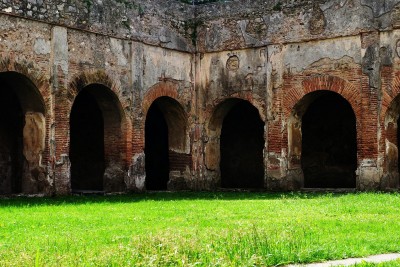The Special Lemons of Amalfi
Their name is "sfusati amalfitan" and they smell like parfume



The correct name is “sfusato amalfitano”. It’s a unique variety- long, tapered and at least double the size of other lemons. It has thick and wrinkled skin with an intense perfume, and a sweet and juicy flesh. Cultivated in the typical terraced gardens along the Amalfi Coast, they are gathered from February to October. The secret to the taste and the special properties of the sfusato amalfitano comes from the formation of the Amafi territory, protected from the cold northern wind by the mountains but exposed to the sea breezes and strong sun. The ancient cultivation methods on terraces of porous earth. fertilized only with natural substances (verdigris)also play a part. The Amalfi lemon is an essential ingredient in the gastronomy of the coast: the juice, the flesh, the peel, and even the leaves are used in the cuisine.

The juice is used to flavor fish and seafood, in general, in refreshing lemonade and in delicate sorbets. In medieval times the sorbet was made from snow collected high up on the mountains and stored in deep caverns until the summer, when it appeared on the tables of the wealthy merchants of Amalfi to surprise rich guests and fellow merchants. As an appetizer or dessert, the flesh is cut into large slices and dressed with a pinch of salt, oil and fresh mint. The leaves are used for the preparation of “frittelle di Ceceniello” (tiny fish on lemon leaves) or to give their aroma to “Conoglio Conchese” (rabbit, Conca style), or provolette (smoked fresh cheese grilled on lemon leaves). The sfusato is used for desserts such as lemon cake, a light sponge flavored with lemon covered with honey; the lemon delights, filled with lemon cream, and last but not least the Babà, which is soaked in lemon syrup.
The New York Times
May 8, 2013
This Business Is a Lemon, and a Family Wants to Keep It That Way
By Rachel Donadio
AMALFI, Italy — On a recent spring morning, Luigi Aceto, a hale 78, climbed a ladder in a terraced lemon grove that stretched up the hillside in one of Italy’s most picturesque towns and expertly began snipping lemons into a wicker basket. The sun was shining. The lemons were ripe and as big as fists. The scent of blossoms was intoxicating.
Mr. Aceto, nicknamed Gigino, was born and raised in these lemon groves, where his family has been working for centuries, first as tenant farmers, then as landowners. But with the land on the Amalfi Coast far more valuable today for luxury tourism than boutique lemons, Mr. Aceto worries what the future will bring…
In many ways, the Aceto family tree mirrors Italy’s transformation from an agrarian peasant society before World War II into an industrial power afterward — and its lingering ambivalence about whether it wants to compete globally or believes its future lies in local traditions. The debate has become more intense since the introduction of the euro in 2002, which raised the price of Italian exports, making it harder for small businesses to compete.




